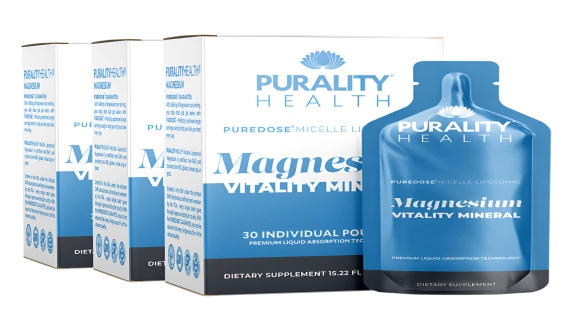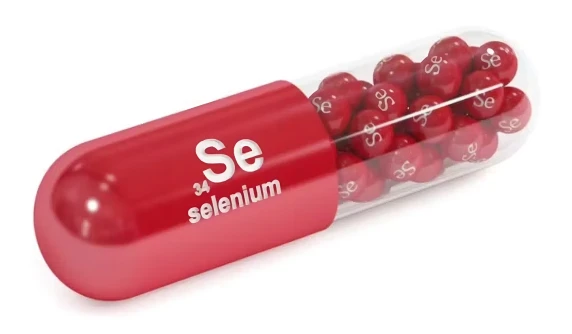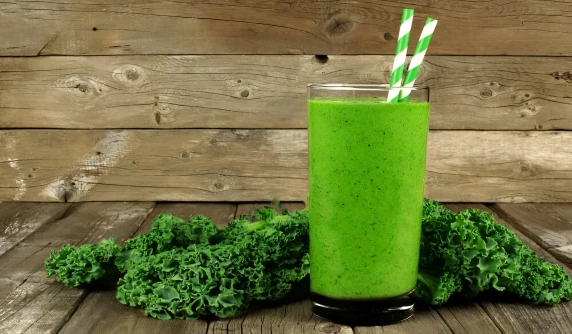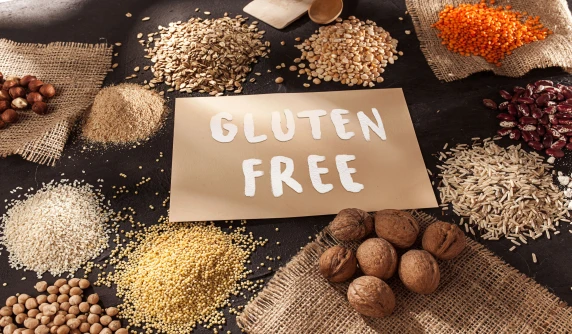
Breakfast cereals are widely consumed, but are they unhealthy?
Cereal is unhealthy, even whole grain varieties, which frequently have chemical coloring, added sugar, and residual pesticides linked to a higher risk of chronic illnesses.
Find out why cereal is bad for you and how to make a healthy breakfast substitute.
Is cereal healthy or not?
Cereals are promoted as a nutritious choice for breakfast. But they're highly processed foods with little nutritional value.
Cereals aren't regarded as a healthy option for the following reasons.
1. Added sugar
Breakfast cereals are generally loaded with sugar, even though a lot of goods are positioned as healthy cereal alternatives.
The added sugar content of most cereals is about four grams (one teaspoon) per serving; however, some sugary cereal brands have up to 12 grams (three teaspoons) per cup.
The majority of adults and kids consume three to four cups of cereal in one sitting, greatly exceeding the American Heart Association's (AHA) suggested daily sugar limit.
The American Heart Association states that excessive sugar intake has been connected to high blood pressure, diabetes, obesity, and heart disease.
2. Artificial dyes and flavors
Artificial colors and tastes derived from petroleum, such as Red #40, Blue #1, and Yellow #6, are found in a lot of breakfast cereals and have been connected to hyperactivity in kids.
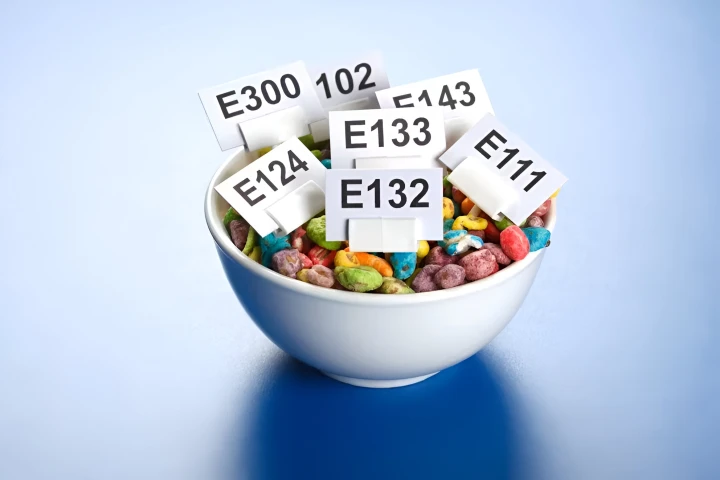
According to research that was published in the Journal of the American Academy of Child and Adolescent Psychiatry, children with attention deficit hyperactivity disorder (ADHD) experienced a reduction in symptoms when artificial colors were removed from their diet.
3. Preservatives
Breakfast cereals are frequently fortified with preservatives, such as butylated hydroxyanisole (BHA) and butylated hydroxytoluene (BHT), to increase their shelf life and preserve their color, flavor, and freshness. They do, however, come with a number of health hazards.
According to Dr. Berg, BHT and BHA are chemical preservatives that cause cancer and can have an impact on the reproductive and endocrine systems.
These preservatives mimic the effects of estrogen on the body, which can upset the balance of hormones and lead to problems with fertility and weight gain.
The truth about cereal
Cereal perception is greatly influenced by marketing, and most cereal brands go to great lengths to imply that their products are healthful.
But the nutrition data on the cereal box will probably show that the ultra-processed components, synthetic vitamins and minerals, and added sugar can cause weight gain, cancer, and cardiovascular disease.
Here's the real scoop on cereal production and why it's not as healthy as people say.
How cereal is made
Cereals are heavily refined, removing a large amount of their natural nutrients, particularly the B vitamins that are so important.
Breakfast cereals are then fortified with synthetic vitamins, which are less successful in promoting healthy nutritional reserves, to make up for this loss.
This is the general process used to make cereals:
-
After being ground into flour, the grains are heated.
-
The wheat flour is mixed with additional ingredients like water, food coloring, refined sugar, or artificial tastes.
-
The mixture is heated to high degrees in a procedure called exertion, after which it is molded and shaped into loops, squares, or circles, depending on the brand.
-
Most cereals are flaked, puffed, or covered in a sweet frosting after drying.
Misleading health claims
Many brands of cereals make health claims about how nutrient-dense and heart-healthy their goods are.
Nevertheless, nutrient-dense cereals are usually fortified with difficult-to-assimilate synthetic vitamins such as riboflavin, niacin, folic acid, and iron, which are frequently sourced from petroleum by products.

The body doesn't effectively use synthetic vitamins, and they've been connected to a higher risk of cancer and other illnesses.
Many businesses claim that their whole grain products are heart-healthy and that eating cereal lowers cholesterol and lowers the risk of heart disease.
Sadly, a lot of these cereals have a lot of added sugar in them. High amounts of low-density lipoprotein LDL, the bad cholesterol connected to atherosclerosis, heart attacks, and stroke, can result from consuming an excessive amount of sugar and carbohydrates.
The health risks of eating cereal every day
The majority of morning cereals, including those with added sugar, refined grains, and whole grains, have a high glycemic index. This suggests that they swiftly raise insulin and blood sugar levels.
Blood sugar fluctuations have the potential to exacerbate mood disorders such as despair and anxiety. In addition, obesity, fatty liver disease, and cholesterol abnormalities linked to high blood pressure, diabetes, and other chronic illnesses are all primarily brought on by elevated blood sugar.
Phytic acid, an anti-nutrient found in whole grains by nature, prevents the absorption of zinc, calcium, iron, and magnesium.
This explains why eating cereal on a daily basis can affect the immune system and cause symptoms including exhaustion, anemia, heart arrhythmias, and other ailments.
Consuming a lot of carbohydrates has also been connected to gastrointestinal tract inflammation. The primary protein in grains, gluten, has the ability to cause immunological reactions that harm the intestinal lining and cause leaky gut, gas, and bloating.
In addition, autoimmune illnesses like Hashimoto's disease and hypothyroidism may be exacerbated by gluten intolerance.
Furthermore, genetically modified organisms (GMOs), which cereal firms occasionally refer to as bioengineered components, are the main ingredient used in the production of cereal grains.
GMO crops are genetically modified to withstand glyphosate, a pesticide associated with cancer, harm to the liver and kidneys, and problems with reproduction.
Many oat-based cereals and breakfast bars contained glyphosate, according to a study published in Food Chemistry.
Does “organic” make it okay?
Even certified organic cereals are regarded as manufactured junk food, despite the fact that organic products are healthier and subject to stricter regulations.
A diet heavy in these kinds of processed foods is deficient in numerous vital elements. This may result in dietary deficits that are connected to long-term conditions including diabetes and heart disease as well as mental disorders.
Additionally, organic cereals are frequently loaded with added sugars that sharply raise insulin and blood sugar levels, increasing the risk of weight gain, exhaustion, and impaired cognitive function.
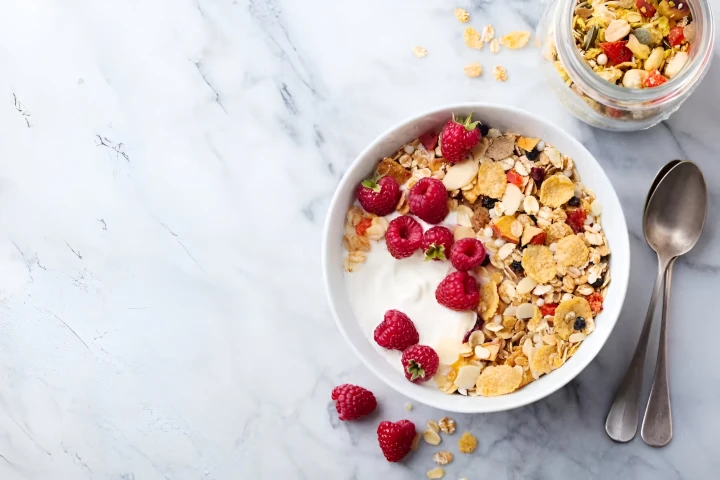
Furthermore, even though synthetic herbicides are banned for use on organic farms and manufactures, they are still used to typical non-GMO crops and cereals like wheat, barley, and oats.
This implies that even non-GMO cereals may still contain glyphosate residue or other potentially harmful substances.
How to choose a nutritious breakfast
Compared to cereal and milk, an unprocessed, low-carb breakfast rich in fat and protein can satisfy hunger, reduce the risk of blood sugar rises, and give you continuous energy throughout the morning.
Rich in iron, B vitamins, vitamins A and D, and healthy fats and protein, whole eggs are a popular breakfast option.
Synthetic forms of these vitamins are frequently added to cereals. Nutrients obtained from food, on the other hand, are more readily absorbed and can benefit overall health.
"A Nutrients study states that including eggs in breakfast can improve nutrient intakes and overall dietary sufficiency.
For a tasty and substantial breakfast, eggs can also be mixed with other proteins, veggies, and healthy fats such shredded pork or beef, leafy greens, tomatoes, and avocados.
Poached eggs are served with a flavorful hollandaise sauce in Eggs Benedict. Coconut flour biscuits can be used as a low-carb alternative to muffins that are high in carbohydrates.
Another filling, nutrient-dense, and easy breakfast-on-the-go recipe that combines bacon, eggs, and mayonnaise is bacon and egg fat bombs.
Key takeaways
Is cereal unhealthy? Yes, even though cereal is branded as organic or non-GMO, it is still regarded as highly processed, harmful junk food.
The majority of cereals are enhanced with synthetic vitamins that are poorly absorbed and less effective, as well as additional sugars, artificial tastes and dyes, and preservatives.
For longer-lasting energy and better nutrition, choose low-carb and whole-food breakfast options like eggs, steak, avocados, and salad instead of sugary cereals.
Sources
Frequently asked questions
Is cereal unhealthy?
Indeed, cereal is regarded as harmful since it usually contains artificial flavors and dyes, added sugars, and preservatives that have been connected to cancer, hormone imbalances, and hyperactivity in children.
Even organic cereals are highly processed and frequently loaded with sugar, which raises blood sugar levels and is associated with obesity and weight gain.
Is cereal keto-friendly?
Cereal isn't keto-friendly since it contains a lot of added sugars and carbohydrates, which raise blood sugar and insulin levels quickly and prevent ketosis and fat burning.
Are breakfast cereal bars healthy?
No, cereal bars aren't healthy because they frequently have processed grains and many grams of added sugar, which raise blood sugar levels and can induce energy dumps as well as more significant health issues including insulin resistance and heart disease.
Additionally, research has shown that glyphosate, a carcinogenic herbicide associated to liver and kidney damage, is present in trace amounts in numerous cereal bars.
Is it bad to eat cereal every day?
Indeed. Regular cereal consumption can raise blood sugar levels continuously, which can result in mood swings, exhaustion, weight gain, and impaired cognitive abilities. Heart disease and diabetes can also be exacerbated by consuming too much cereal.
What is the unhealthiest cereal?
The most unhealthy cereals for breakfast are usually those promoted for kids, like Cinnamon Toast Crunch, Lucky Charms, and Fruity Pebbles.
Is cereal considered junk food?
Indeed, cereal is regarded as junk food due to its extreme processing, high sugar content, artificial coloring and flavoring, and low nutritional value even when it is fortified with synthetic vitamins.
What happens when you eat too much cereal?
Cereal has a high glycemic index, which causes blood sugar levels to surge quickly. This may result in blood sugar changes that are connected to mood swings, extreme cravings, and exhaustion.
